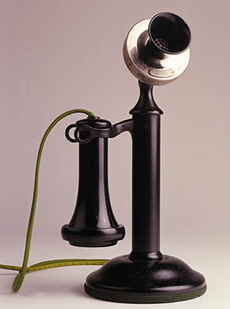
Pity the pollsters - even when they get it right they can get it wrong.
So far the provincial election polls have been remarkably consistent, showing the Liberals out in front of the NDP by seven or eight percentage points.
But veteran pollster Angus Reid cautions that results on May 17 may not match the polls.
"We'll probably get a bit of a surprise on election day," Reid said. "I'm not sure that I'd blame the polls. I think the big fact is who's actually going to turn out to vote."
Turnout rates for elections have generally been dropping in recent years and B.C. is no exception; the turnout rate here has dropped in every election since 1983. The problem is that the people who bother to vote may be different as a group from the general population.
A poll may be correct when it indicates that, say, 46 per cent of eligible voters in the province prefer the Liberals and 39 per cent like the NDP. But at least 30 per cent of those eligible voters probably won't bother to vote. And if there's a disproportionate number of one party's supporters in that stay-at-home group, the result is going to be a surprise.
"Your poll could be exactly right in terms of what is the perception overall in the province, but when you actually look at the people who turn out to vote, if that ends up favouring one party or the other then you end up off base," Reid said.
Most refuse surveys
The polling business is also grappling with a second trend: eligible voters don't like to talk to pollsters. This is a trend that has many in the polling industry worried.
The Professional Marketing Research Society, which represents Canadian pollsters and market researchers, reports that about four out of every five respondents contacted by Canadian pollsters refuse to participate. Because of answering machines and call display technology, half the calls that pollsters make are never answered.
This means that it takes 10 phone calls to reach one respondent. For a typical B.C. election poll, a pollster must dial 6,000 to 10,000 numbers to get a representative sample.
In addition to increasing pollsters' telephone bills, this also raises questions about the people who are being interviewed. Are the people who agree to talk to pollsters different from other voters? Are people who are fed up with the government, for example, more likely to take a pollster's call?
'Dirty secret' of polling
In a story in The Tyee last year, Reid called this "the big dirty secret" of the polling industry. After that story ran, people in the industry called him a "traitor," he said this week.
Reid remains adamant that increasing refusal rates are going to bite pollsters sooner or later: "This could be a good test, this campaign. Maybe they'll get this one right, I don't know."
But he adds: "The tide is definitely going out, not in. And at some point you're going to be stuck in the sand, whether it's this election or the next election. The days of telephone polling as we know them, the glory days of the '80s and '90s, those days are over."
Reid made his reputation during those "glory days," when he became one of Canada's best-known pollsters. He sold his company to the international market research giant Ipsos a few years ago and currently heads Angus Reid Consultants, which is not involved in polling in this election.
Pay as you poll?
Reid said that Canadian pollsters will eventually have to switch from telephone polling to online polling, as practiced by the U.K. company YouGov. YouGov sends online questionnaires to people selected from a master list of more than 50,000 British voters who have agreed to participate. For each poll, a sample is constructed from the master list that mimics the population at large in terms of age, gender, class and type of newspaper read.
Controversially, YouGov also pays respondents, as much as five pounds per questionnaire.
"Some of the purists say that's awful, but I say, 'What the hell else are you going to do?'" Reid said. "You've got 80 per cent of the population that wants you to bugger off. You're charging your client for this stuff, why shouldn't these people be paid a little bit for sharing their views?"
Veteran political reporter Tom Barrett is a contributing editor to The Tyee. ![]()














Tyee Commenting Guidelines
Comments that violate guidelines risk being deleted, and violations may result in a temporary or permanent user ban. Maintain the spirit of good conversation to stay in the discussion.
*Please note The Tyee is not a forum for spreading misinformation about COVID-19, denying its existence or minimizing its risk to public health.
Do:
Do not: